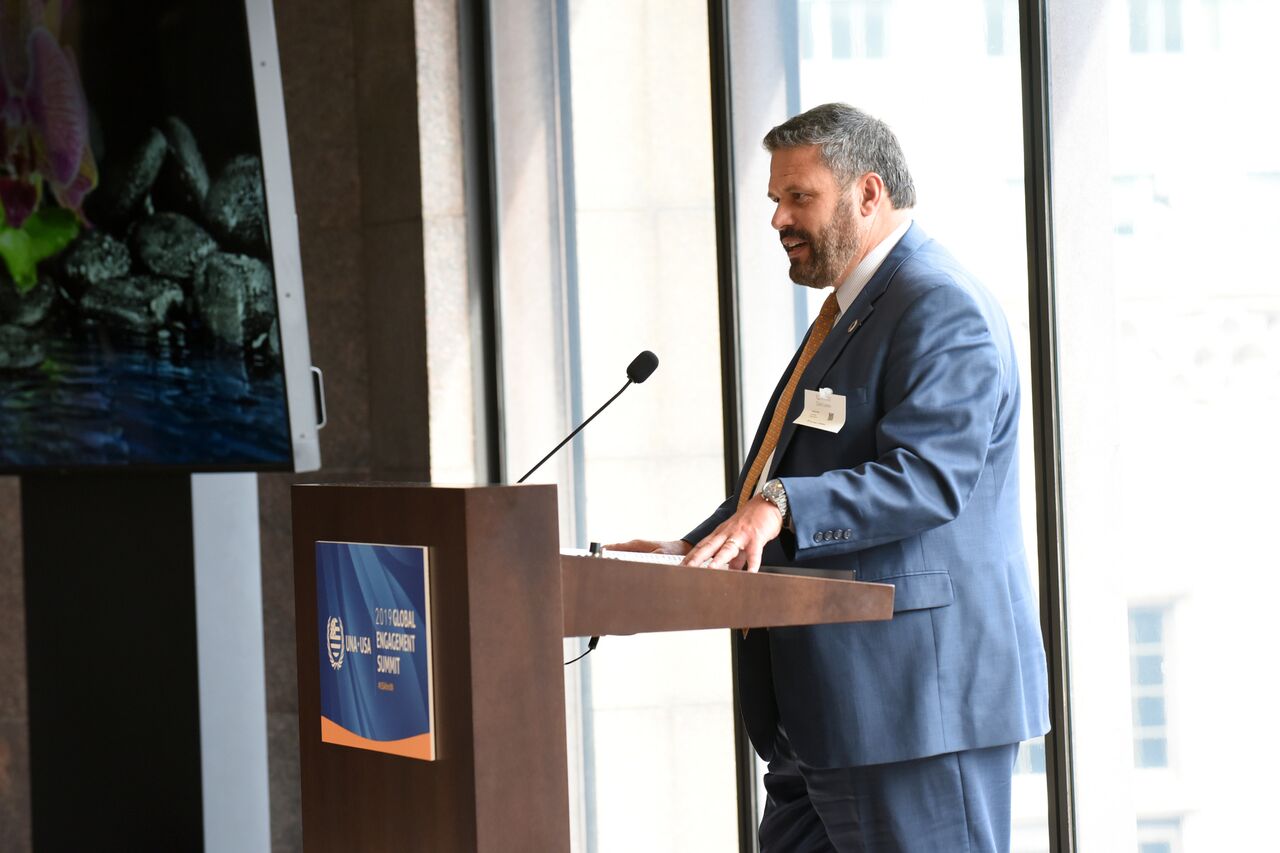Student Leaders Discuss the Future of Work at UNA-USA’s Global Engagement Summit
Student-Corporate Networking Lunch
Photo by Diane Bondareff for UN Foundation
Student-Corporate Networking Lunch
Photo by Diane Bondareff for UN Foundation
Student-Corporate Networking Lunch
Photo by Diane Bondareff for UN Foundation
Student-Corporate Networking Lunch
Photo by Diane Bondareff for UN Foundation
Student-Corporate Networking Lunch
Photo by Diane Bondareff for UN Foundation
Student-Corporate Networking Lunch
Photo by Diane Bondareff for UN Foundation
Student-Corporate Networking Lunch
Photo by Diane Bondareff for UN Foundation
Student-Corporate Networking Lunch
Photo by Diane Bondareff for UN Foundation
Student-Corporate Networking Lunch
Photo by Diane Bondareff for UN Foundation
Student-Corporate Networking Lunch
Photo by Diane Bondareff for UN Foundation
Student-Corporate Networking Lunch
Photo by Diane Bondareff for UN Foundation
Student-Corporate Networking Lunch
Photo by Diane Bondareff for UN Foundation
Student-Corporate Networking Lunch
Photo by Diane Bondareff for UN Foundation
Student-Corporate Networking Lunch
Photo by Diane Bondareff for UN Foundation
Student-Corporate Networking Lunch
Photo by Diane Bondareff for UN FoundationPhoto by Diane Bondareff for UN Foundation
Student-Corporate Networking Lunch
Photo by Diane Bondareff for UN Foundation
The question of the future for students may not be “What do you want to do when you graduate?” Instead it may be, “What problems do you want to solve?”
Nearly 100 UNA-USA student leaders and corporate partners met during the 2019 Global Engagement Summit to discuss the topic of young leaders and the future of work. Here were some of the highlights:
- Ambassador Elizabeth Cousens, Deputy CEO of the UN Foundation, set the stage for the conversation and emphasized the importance of partnerships in achieving the Sustainable Development Goals. In the past 70 years that the UN was created, the need for collective action and common purpose has not changed. Ambassador Cousens emphasized the importance of going farther together than we do alone.
- Don Lewis, President of Professional Hygiene at Essity spoke about the corporate talent pipeline and skills that students can cultivate to be attractive candidates to future employers. Mr. Lewis advised students to be clear on the type of values they hold, and urged them to seek employers that holds those same values. By doing so, student can help make vital difference in achieving the Sustainable Development Goals.
- This year, the International Labour Organization (ILO) celebrates its 100th anniversary, and at this event, UNA-USA was pleased to be joined by Vinicius Pinheiro, Deputy Director of the ILO Office for the UN (New York). The ILO Centenary will be an opportunity to celebrate the ILO’s achievements and re-engage stakeholders in crucial conversations around the future of work. The first major highlight was the launch of the report of the Global Commission on the Future of Work. Mr. Pinheiro spoke about the key pillars of Decent Work and how the 2030 agenda supports youth employment.
- U.S. Youth Observer to the UN Michael Scott Peters emphasized the importance of learning how to learn. He cited a Dell Technologies’ Realize 2030 report that found that a majority of business leaders believe that schools will need to prepare students for jobs that don’t exist yet. Mr. Peters pointed students to draw on their community around them and the network of minds in the room to help prepare themselves for the future workforce.
After the opening program, students and corporate partners engaged in small-group discussions on issues such as youth unemployment, career readiness, and the dignity of work. “I appreciated the insights about the future of employment and the continuous positive impact the United Nations is having on the world,” said student attendee Stephanie Gonzalez. Groups were asked to tackle the following questions:
- What does the future of work at your company look like? What new skills are companies looking for in employees?
- The future workforce is more diverse than ever – What are some of the challenges that “new” leaders face in the current job market? What are “now” leaders doing to reduce inequalities in the workplace?
- How has your company made commitments to the SDGs, and how will that affect the future of the work you do and the workforce you employ?
- How can we all be part of a movement to make sure that every young person in 2030 is employed or in training or in education?
- For “Now Leaders”: What are the elements of a well-designed internship/externship program that can increase future job prospects for “new leaders”? For “New Leaders”: What are the opportunities that you are looking for in a successful career and/or organization?
Overall, a key takeaway from these discussions was that the future of work is still being created, determined, and realized. Student leaders have the opportunity to create this bridge to new careers as they are walking on it. This discussion at the Global Engagement Summit was an exciting opportunity for “new leaders” to collaborate with “now leaders” on what this future could look like.




